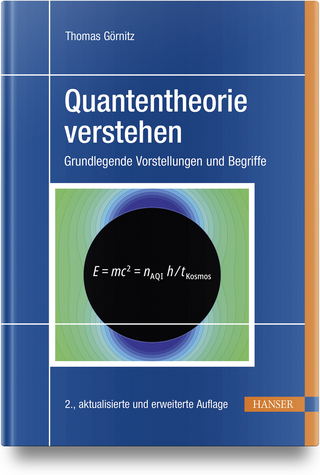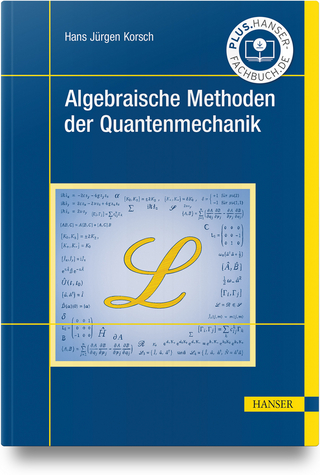
Relativity, Symmetry and the Structure of the Quantum Theory
Morgan and Claypool Life Sciences (Verlag)
978-1-62705-623-6 (ISBN)
- Lieferbar
- Versandkostenfrei
- Auch auf Rechnung
- Artikel merken
This book is the first in a series of three that argues that relativity and symmetry determine the structure of quantum theory. That is to say, the structure of quantum theory is what it is because of relativity and symmetry. There are different types of relativity, each leading to a particular type of quantum theory. This book deals specifically with what we call Newton relativity, the form of relativity built into Newtonian mechanics, and the quantum theory to which it gives rise, which we call Galilean (often misleadingly called non-relativistic) quantum theory.
Key Features:
Meaning and significance of the term of relativity; discussion of the principle of relativity.
Relation of symmetry to relativity. Significance of the notion of representations of symmetry transformations in formulating a quantum theory.
Representations of Galilean symmetry and how they lead to the most common form of quantum theory.
Extension of Newtonian relativity to accelerating quantum systems and broadened quantum theory.
William Klink received his PhD from Johns Hopkins University, USA. He was professor of physics for many years at the University of Iowa, and is now professor emeritus. His main research interests have centered around the study of symmetry, both in its mathematical formulations, and in its physical consequences. Sujeev Wickramasekara received his PhD in theoretical physics from the University of Texas at Austin, USA. He held the Weiss Instructorship in Physics and Astronomy at Rice University before moving to Grinnell College where he is now associate professor of physics. His main research interests include representation theory of groups and its applications to physics, resonance scattering and decay phenomena, and rigged Hilbert spaces.
Introduction
Newton Relativity and One-Particle Galilean Quantum Theory
Noninertial Transformations, Fictitious Forces, and the Equivalence Principle
Multiparticle Systems and Interactions
Internal Symmetries
Conclusion
Appendix A: Transitive Manifolds
Appendix B: Irreducible Representations of the Galilei Group and the Origin of Mass and Spin
Appendix C: Decomposition of n-fold Tensor Products and Clebsch-Gordan Coefficients
| Reihe/Serie | IOP Concise Physics |
|---|---|
| Verlagsort | San Rafael, CA |
| Sprache | englisch |
| Maße | 178 x 254 mm |
| Gewicht | 333 g |
| Themenwelt | Naturwissenschaften ► Physik / Astronomie ► Quantenphysik |
| Naturwissenschaften ► Physik / Astronomie ► Relativitätstheorie | |
| Naturwissenschaften ► Physik / Astronomie ► Theoretische Physik | |
| ISBN-10 | 1-62705-623-8 / 1627056238 |
| ISBN-13 | 978-1-62705-623-6 / 9781627056236 |
| Zustand | Neuware |
| Haben Sie eine Frage zum Produkt? |
aus dem Bereich


